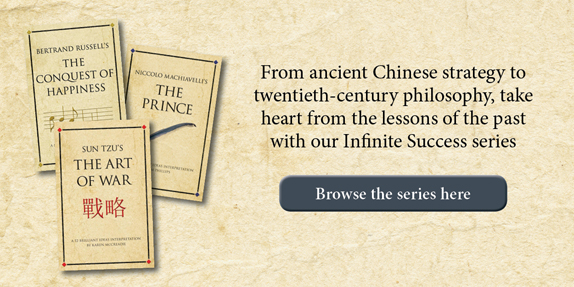War: how does it all begin?
6 August 2014 by Catherine Holdsworth in Business and finance
By now you’ve probably all seen the impressive display of ceramic poppies at the Tower of London, commemorating all those who died in the First World War. Over the next four years there will be many more commemorations like the one on Monday, marking the outbreak of war one hundred years ago. Interestingly, in his speech on Monday Prince William remarked how, one hundred years later, old enemies, Britain and Germany, were joined together to remember. In the twenty-first century, the world looks to Gaza and Israel and wonders whether they will ever unite as old friends.

But how does it all begin? In this extract from Andrew Holmes’ book, Carl von Clausewitz’s On War, Holmes examines how conflicts emerge and how relatively minor day-to-day problems can easily escalate through lack of understanding about how the individual elements of a ‘system’ affect each other.
Although we like to believe that we can operate as an island, the truth is we are part of a wider system that controls us more than we could ever know. In many ways von Clausewitz was ahead of his time, but there was one area in particular where he was light years ahead: systems thinking. Although systems theory as we know it today had yet to be defined or articulated, von Clausewitz understood war was not an isolated act. In his view, opponents in war could not regard each other as abstract entities; they were part of a wider system that included individual behaviour as well as politics. As a result, it was a relatively straightforward process to understand and model the motives of a potential enemy; all you had to do was observe. And because war was part of a larger ‘system’, it rarely broke out spontaneously nor could it spread instantaneously.
A perfect example of this is the run-up to World War I, in which a series of interlocking pacts and agreements such as the Entente Cordiale between Great Britain and France created conditions for global conflict. All that was needed was the spark – conveniently provided by Gavrilo Princip when he shot Archduke Franz Ferdinand on 28 June 1914. And because of the interconnected nature of the pacts, no one could have stopped the war, had they wanted to.
The concept of systems theory within an organisational setting didn’t gain much traction until after the emergence of information technology (IT). IT provided the glue that connected not only the different functions within a business but individual companies, too. For example, our global finance system would not exist without the sophisticated trading platforms that tie investment and retail banks, central banks and trading floors across the world into a seamless whole. Wal-Mart too would not be able to hold down its prices in the way that it does without a global supply chain management system that tracks absolutely everything. Indeed, every business, even small ones, depend on IT and when you roll this up to the country or continental level, it is safe to say few businesses could be considered isolated. Each and every one is connected to all others, directly through trading relationships or indirectly via market forces and competition. Whether we like it or not, we are all part of a system and it’s a good idea to understand how we are impacted by it; also how we can influence it. To do so requires a basic understanding of systems dynamics and systems thinking in which it is possible to model the various components and the interactions between them. Once you get the hang of it, systems thinking lets you model feedback loops and gain an understanding of how your business interacts with the wider markets in which it operates. It’s great stuff!
How your actions impact on others
How do your decisions impact on others? Sometimes we don’t know and this leads to unintended consequences and surprises. When making a decision, see how it affects other parts of the business and determine if the results are what you expect. If not, consider how you might change the decision to have a more effective outcome.

